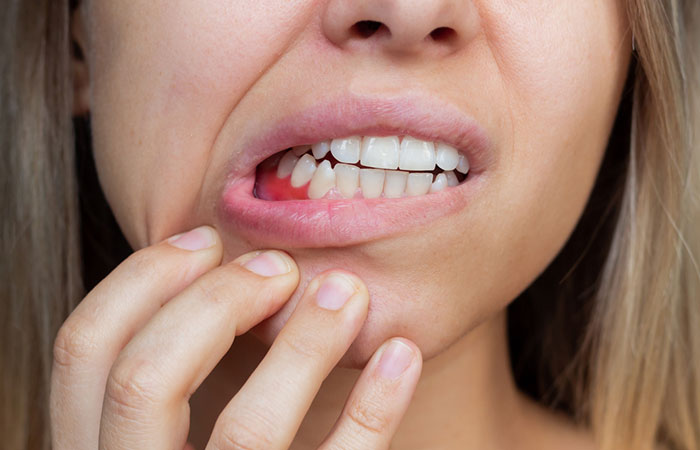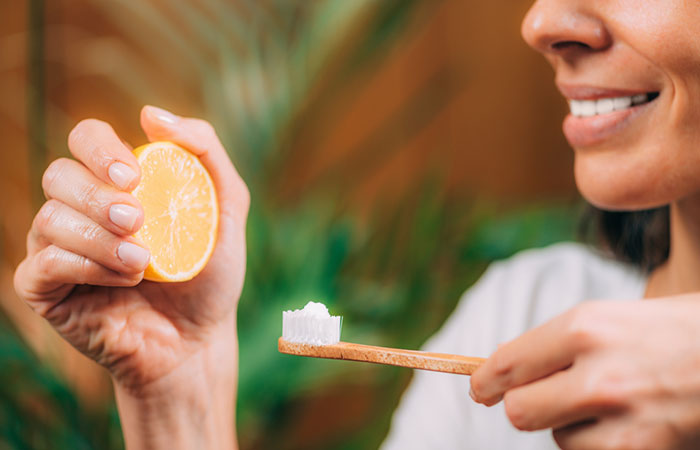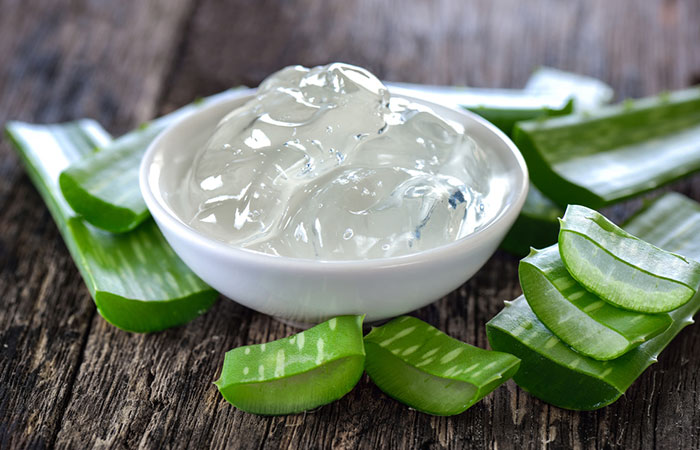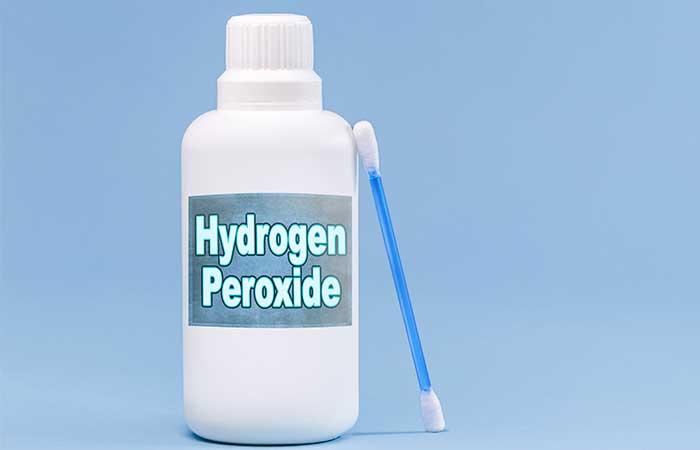Lack of oral hygiene or food getting stuck in your teeth can cause swollen and painful gums. If your gum tissues bleed at the smallest touch of your brush, it might be a symptom of a gum illness called gingivitis or periodontitis . Excruciating and uncomfortable past words, inflamed periodontals can interrupt your daily activities, however the good news is, there are a number of natural remedy for swollen periodontals you can try to reduce the discomfort. In this post, we discover the signs and simple ideas to prevent puffy periodontals. Keep in mind: While gum tissue conditions can not be dealt with entirely with natural remedy, consult a doctor promptly for additional therapy.
In This Article
What Causes Swollen Gums?
Swollen gums are commonly caused by:
- Plaque and tartar in your mouth can lead to gum swelling (Gingivitis)
- When the gingival infection progresses, gum swelling is sustained in the mouth (Periodontitis)
- Viral or fungal infections
- Irritation due to dental fixtures i X Surgical implants that are placed in the jawbone to replace missing teeth, and they eventually merge with the jawbone.
- Pregnancy
- Allergies and sensitivity to dental products or food
- Gum injury ( 1 ), ( 2 )
Related: 10 Effective Home Remedies For Pyorrhea (Gum Disease)
Symptoms For Swollen Gums

The common symptoms of this condition include:
- Bleeding of the gums
- Red and swollen gums
- Pain
- Increase in the gaps between the teeth
- Bad breath ( 1 ), ( 2 )
Amelia, a vlogger, shared her uncomfortable experience with puffy periodontals as a result of her braces in her video. She stated, "I experienced a lot of periodontal swelling when I had my braces on. They kept getting worse ( i ).”
Below are 15 of the most effective home remedies that can alleviate swollen gum tissues, be a fantastic enhancement to your oral treatment and aid in preserving proper dental wellness.
Home Remedies To Get Rid Of Swollen Gums
- Salt Water
- Clove Oil
- Ginger
- Baking Soda
- Lemon Juice
- Essential Oils
- Lawsonia Inermis Leaves
- Castor Seed Oil
- Babul (Acacia Arabica) Tree Bark
- Aloe Vera Gel
- Turmeric
- Apple Cider Vinegar
- Vanilla Extract
- Epsom Salt
- Hydrogen Peroxide
1. Salt Water
Saltwater is among one of the most generally made use of treatments for oral issues. It counteracts the mouth's pH and calms irritated periodontals ( 3 ). A saltwater rinse was also found to be beneficial in preventing swelling of the alveolar bone i X It is the thick ridge of bone that holds the teeth sockets and is located to the jaw bones that support the teeth. after tooth removal ( 4 ). Hence, it may help reduce swelling around the gums. However, more scientific studies are needed to determine the effect of saltwater rinse on gingivitis.
Note : Remember that the relief will only be temporary with this remedy.
You Will Need
- 1 tablespoon salt
- A glass of warm water
What You Have To Do
Add the salt to a glass of warm water and rinse your mouth with it.
How Often You Should Do This
Do this in the morning and at night, after having your meals.
2. Clove Oil

Clove oil is another age-old home remedy that is often used to treat swollen gums. It has antibacterial, analgesic i X It refers to a team of over-the-counter medications specifically targeted towards lessening or relieving pain without loss of consciousness., and anti-inflammatory homes that can help in reducing infection and swelling around the gums ( 5 ).
You Will Need
2-3 drops of clove oil
What You Have To Do
- Apply clove oil on the swollen gums and massage very gently.
- Leave it on.
You can also use clove oil combined with black pepper to decrease periodontal swelling and pain. Professionals additionally recommend eating on cloves to get gum tissue and tooth pain alleviation.
How Often You Should Do This
Reapply every few hours.
Related: 6 Ways To Use Clove Oil For Toothache Relief & Potential Risks
3. Ginger
Ginger possesses antibacterial, antifungal, anti-inflammatory, and antioxidant properties that can help reduce the swelling in your gums ( 6 ).
You Will Need
- A small piece of ginger
- 1/2 teaspoon salt
What You Have To Do
- Crush and mash the ginger and add the salt to it to get a coarse paste.
- Rub this paste on the swollen parts of your gum and leave it on for 10-12 minutes.
- Rinse your mouth with normal water.
How Often You Should Do This
Do this 2-3 times a day.
4. Baking Soda
Sodium bicarbonate has antiseptic and antibacterial residential properties that can assist treat the infection creating the swelling. It likewise helps in inflammation reduction of your gum tissues and calms the tender skin. Studies show that baking soda significantly reduces dental plaque and gingival inflammation ( 7 ), ( 8 ).
You Will Need
- 1 teaspoon baking soda
- A pinch of turmeric
What You Have To Do
- Mix baking soda with turmeric powder and massage your gums with the mixture.
- Rinse your mouth with clean water.
- Using baking soda to brush your teeth can also treat swollen gums.
How Often You Should Do This
Repeat this every morning and every evening.
5. Lemon Juice

Lemon contains antimicrobial compounds ( 9 ). It can help kill the germs creating the infection and the resultant swelling in your periodontals. It additionally stabilizes the pH in your mouth.
You Will Need
- 1 tablespoon lemon juice
- A glass of warm water
- 1-2 drops rose flower essence (optional)
What You Have To Do
Mix the lemon juice with water and gargle with this solution.
How Often You Should Do This
Gargle twice every day until you get relief.
6. Essential Oils
Oils of chamomile, tea tree, and peppermint can function marvels in eliminating discomfort in the gums. Tea tree and peppermint oils are solid antimicrobial agents ( 10 ), ( 11 ). Chamomile oil soothes the inflamed gums and reduces swelling and pain ( 12 ).
You Will Need
- 2 drops chamomile essential oil
- 2 drops tea tree essential oil
- 2 drops peppermint essential oil
- A glass of warm water
What You Have To Do
- Add the essential oils to a glass of water and rinse your mouth with it for 2-3 minutes.
- Rinse your mouth with clean water after this.
- You can also add a couple of decreases of tea tree oil to your tooth paste and brush your teeth with it.
How Often You Should Do This
Use this mouthwash twice a day.
7. Lawsonia Inermis (Henna) Leaves
Rat studies showed that Lawsonia inermis (henna) leaf extracts can help in healing gingivitis ( 13 ). Hence, these leaves can help in reducing swelling and pain around the gums.
You Will Need
- Few Lawsonia inermis (henna) leaves
- A glass of water
What You Have To Do
- Boil the leaves in water for about 15 minutes.
- Gargle with the solution to get relief from swollen gum pain.
How Often You Should Do This
Do this two times a day.
8. Castor Seed Oil
Camphor is an analgesic and has a long history of use as a remedy for gum and tooth disorders ( 14 ). Castor oil exerts anti-inflammatory effects on the swelling ( 15 ).
You Will Need
- 1 camphor tablet
- A few drops castor seed oil
What You Have To Do
- Crush the camphor tablet and make a paste by mixing castor oil with it.
- Gently rub the paste on the affected areas of your gum.
- Leave it on for 2-3 minutes and then rinse your mouth with warm water to remove all the camphor.
How Often You Should Do This
Repeat this once every day.
9. Babul (Acacia Arabica) Tree Bark
Ayurveda suggested eating the Babul (or babool) bark to keep your teeth clean and healthy and balanced. The antibacterial task of acacia gum can assist prevent the development of gum pathogens ( 16 ). Using this remedy will give you relief from the inflammation that comes with swollen gums.
You Will Need
- 1-inch piece of Babul tree bark
- A glass of water
What You Have To Do
- Boil the tree bark in water for 5-7 minutes.
- Use this as mouthwash.
How Often You Should Do This
Rinse your mouth with this 3-4 times a day.
10. Aloe Vera Gel

The gel extracted from this marvel plant has anti-bacterial, anti-inflammatory, and antioxidant residential properties. It heals the swelling and inflammation in your gum tissues and kills the unsafe germs ( 17 ).
You Will Need
An aloe leaf
What You Have To Do
- Extract the gel present inside the leaf and apply it to the gums.
- Leave it on for as long as possible and then rinse your mouth.
- You can also use the gel to gargle for the effective treatment of swollen gums.
How Often You Should Do This
Apply aloe gel twice a day.
11. Turmeric
Turmeric is a strong antimicrobial agent and can help reduce inflammation and gingivitis ( 18 ).
You Will Need
- 1 teaspoon turmeric powder
- 1/2 teaspoon salt
- 1/2 teaspoon mustard oil
What You Have To Do
- Make a paste with the above ingredients and apply on the swollen gums.
- Leave this on for 10-12 minutes.
- Rinse out the turmeric paste with water.
How Often You Should Do This
Repeat this twice a day.
12. Apple Cider Vinegar
Apple cider vinegar includes moderate acids that restore the pH balance in your mouth. It also shows antimicrobial impacts against dental pathogens ( 19 ), ( 20 ). This reduces the infection and the swelling in your gums.
You Will Need
- 1 tablespoon apple cider vinegar
- A glass of water
What You Have To Do
Mix the vinegar with water and use this to rinse your mouth.
How Often You Should Do This
Rinse with ACV 2-3 times in a day.
13. Vanilla Extract
Vanillin, the principal component of vanilla, exhibits antibacterial properties ( 21 ). Another study found that vanillin showed significant antibacterial properties when used as a component in a mouthwash ( 22 ). Thus, it can not only keep oral bacteria at bay but also reduce the swelling in the gums.
You Will Need
1-2 drops vanilla extract
What You Have To Do
- Using a clean finger (or a Q-tip), apply vanilla extract on the affected gum.
- Leave it on.
How Often You Should Do This
Reapply twice a day.
14. Epsom Salt
Epsom salt is known to soothe inflammation and pain ( 23 ). Hence, it can help reduce the swelling around the gums.
You Will Need
- 1 teaspoon Epsom salt
- A glass of warm water
What You Have To Do
Mix the Epsom salt in water and gargle with this solution.
How Often You Should Do This
Gargle with this every morning and at night, before going to bed.
15. Hydrogen Peroxide

Hydrogen peroxide may help reduce germs and inflammation in the mouth. This way, it might help in reducing the swelling and infection in the periodontals. Even more, it may also aid treat and avoid plaque and gingivitis ( 24 ).
You Will Need
- 3 tablespoons of 3% hydrogen peroxide solution
- 3 tablespoons of water
What You Have To Do
- Dilute the hydrogen peroxide solution with water.
- Rinse your mouth with the diluted solution for about 30 seconds.
- Ensure that you spit out the solution.
- Rinse your mouth with plain water to remove any remaining hydrogen peroxide.
How Often You Should Do This
Use this solution once a day.
All-natural treatments are one method to treat puffy periodontals. You can not only treat the agonizing symptoms yet likewise get relief utilizing simple ingredients you contend home.
Quick TipYou can also chew on sugarless gum to reduce the pain and prevent your mouth from getting dry.
Related: Effective Home Remedies For Gum Pain That Provide Quick Relief
Preventive Tips For Gum Swelling And Gum Bleeding
Try the following tips to prevent gum bleeding and swelling.
- Use non-irritating toothpaste and mouthwash that are gentle yet effective.
- Brush at least twice a day, because good dental hygiene is the way to prevent gingivitis.
- Stay away from beverages that contain artificial sugars and colors.
- Avoid tobacco and alcohol as they can irritate your gums further.
- Follow a well-balanced diet that contains vitamins and other nutrients for healthy gums.
Quick TipYou can obtain your teeth cleaned by a dental expert every 3 months to avoid swelling and gum tissue diseases and accelerate the recuperation from existing issues, if any.
In spite of adhering to these pointers, if you still see bleeding and swelling of the consult your doctor to recognize the underlying reason for this problem.
Infographic: Swollen Gums: Dos And Don’ts
Swollen periodontals are painful and unpleasant. They are typically an indication of gum disease or injury. To promote their healing and to avoid the condition from worsening, there are specific do's and do n'ts that you may think about complying with.
Take a look at the infographic to understand more about what to do and what to prevent when struggling with swollen gums.
Illustration:
Get the high-quality PDF version of this infographic.
Swollen gums are most commonly a result of oral infections as a result of the overgrowth of microorganisms on deposits of plaque and tartar. Nonetheless, they may additionally be brought on by other problems such as periodontal injury, pregnancy, denture fixtures, and allergic reactions. Soreness, bleeding, pain, and halitosis are signs that typically go along with puffy gums. The natural remedy for inflamed periodontals gone over here, like saline rinse, baking soda, clove oil, aloe vera, turmeric, castor oil, and babul bark, might supply symptomatic relief and facilitate recovery. However, to prevent complications, it is suggested that you seek advice from a dental expert and comply with the prescribed treatment along with these herbal solutions. And while the already-mentioned tips can be beneficial, there are a couple of even more very easy treatments you can bookmark also, such as coconut oil, sage, honey, and even some homeopathic remedies.
Frequently Asked Questions
Is Listerine good for swollen gums?
Listerine is a disinfectant mouthwash that may assist inhibit microbial growth and improve swollen gums created because of an infection in its onset.
Does hydrogen peroxide help swollen gums?
Yes, 3% hydrogen peroxide used as a rinse may help improve swollen gums.
Is garlic good for swollen gums?
Yes, garlic has antimicrobial and anti-inflammatory properties that may help reduce swelling in the gums ( 25 ).
What is the fastest way to heal swollen gums?
A correct swollen periodontals treatment in the house could be a little bit tough. However, you can manage the swelling and decrease discomfort by swishing with lukewarm salt water that helps remove germs. Make use of a warm compress to help reduce the discomfort. Stay clear of gargling and consuming alcohol or tobacco.
Key Takeaways
- Rinse your mouth with salt water to lessen gum irritation and swelling.
- Apply aloe vera gel to ease sore gums and speed up recovery.
- To stop bleeding and swelling in the gums, brushing and flossing at least twice daily is recommended.
- If the symptoms last longer than a week, or if there is discomfort or bleeding, visit a dentist immediately.


